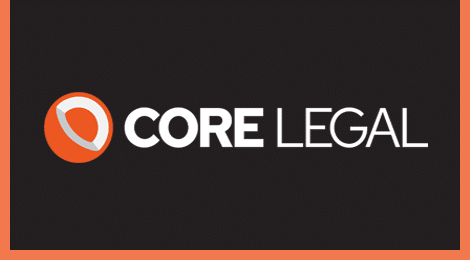What is a shareholders agreement?
A shareholders’ agreement is a confidential agreement between the shareholders in a company that dictates the relationship between the shareholders and the company, and between the shareholders as individuals. There is no legal requirement to have a shareholders’ agreement however it is best practice to have one.
Below, we answer some commonly asked questions about shareholders’ agreements:
Why bother with a Shareholders’ Agreement?
In the absence of a shareholders’ agreement, awkward and difficult situations can arise which can lead to unsatisfactory results. If you do not have a shareholders agreement, the default rules under the Companies Act 1993 (“CA 1993”) will apply.
This can be problematic because either:
- the default positions under the CA 1993 are not appropriate for the shareholders; or
- the CA 1993 is silent on the particular governance matter you are dealing with.
By way of example, some of the default CA 1993 rules are:
- Directors must be appointed by “ordinary resolution” – e.g. a simple majority of the voting shareholders. The directors form the board, and the board oversees and is responsible for the management of the company. So, whoever has a simple majority of the shares can control the company. If you hold less than 50% of the shares, you have no say on director appointments and can be removed as a director by those who hold a simple majority.
- Your shares are freely transferable to another person. For example, if your co-founder decides to sell their shares to a competitor, your competitor becomes your new partner.
- If there is a dispute between the shareholders, the CA 1993 does not specify how you can resolve them. Your options are commercial negotiations if everyone is willing, or expensive litigation through the Courts to resolve the issue.
- Your other shareholders can freely compete with the company while they are a shareholder or after they leave the company. Complicating this issue further, it may not be clear who owns the intellectual property being used by the company.
- If you have less than 25% of the shares in the company, you do not have a voice on the more fundamental company decisions. These may include decisions to sell the business and its assets, or to enter into key supplier or customer contracts that are defined as a “major transaction”.
- In general – and especially if you are an equal co-founder or a minority investor – you shouldn’t be happy with the default rules. A shareholders’ agreement helps to make the rules more appropriate and clearer for the shareholders.
What clauses should you include in a Shareholders’ Agreement?
The purpose of a shareholders’ agreement is to alter the default rules or to add to them in a way that is specific and relevant to your business. There are no set rules, and the starting position is that everything is negotiable. However, there are some key items that are frequently included:
- Director appointment rights – The parties can agree that each shareholder can appoint a director even if each of them has less than a simple majority of the shares. The right to appoint a director may also be “personal” and tied to the shareholders’ identity, regardless of their shareholding percentage. In some situations, you may decide that the right to appoint a director will be lost when you reduce your shareholding below a certain percentage.
- Decision-making – The default rule is that the board makes decisions for the company, acting with a majority. The proviso is that in specific situations they may require shareholder approvals, such as when entering into major transactions. If you do not have a board seat or are in the minority as a board member or a shareholder, you may expect to have a further say in that decision. It is possible to carve out specific corporate actions to require a special board or shareholder approval.
- Governance and information – The shareholders’ agreement should include governance items such as the frequency of board meetings, the type of information the company requires at the meetings, the frequency of its review (generally annual), and a dividend policy.
- Capital raising – The company should have a broad outline of how it will go about raising new capital. If new shares are to be issued to raise capital, existing shareholders should have the first right of refusal to obtain further shares. If one or more shareholders are to lend money to the company, the shareholders may want to agree on how those amounts should be repaid and whether the company will grant the lender a security interest over its assets.
- Sale and exit – If a shareholder wishes to exit the company, the remaining shareholders should have the first right to buy out the exiting shareholder. They may also want to have a right to veto third party purchasers on reasonable grounds, e.g. if the purchaser is a competitor. The shareholders may also want to stipulate when they can force all shareholders to a sale of the company.
- Restraint and Intellectual Property – Every shareholder has an aligned interest to protect the goodwill of the company. Restraints of trade and non-solicitation obligations help protect the business goodwill.
- Dispute resolution – A dispute resolution mechanism will help everyone navigate their disputes and any deadlocks. It will also encourage voluntary settlements and hopefully avoid the need to file Court proceedings.
This is not a comprehensive full list of the types of clauses you may require. Shareholders Agreements depend on individual circumstances and are drafted specifically for the company to suit the individuals involved. We ask clients what is important to them in terms of what they want to achieve before drafting a shareholder’s agreement to ensure the document is tailored to their requirements.
Should you have a Company Constitution as well as a Shareholders’ Agreement?
A constitution can be very useful and sits alongside the shareholders’ agreement. By law, a company may only take certain corporate actions if its constitution expressly allows them. For example, unless its constitution expressly permits it:
- The company cannot buy back its shares; and
- The company cannot put in place directors’ liability insurance or provide an indemnity in favour of its directors.
While a shareholders’ agreement is a private and confidential agreement between the shareholders of the company, a constitution is a public document. It must be filed with the Companies Office and is viewable by anyone on the public register. It may not be desirable to share the details of how a company is run (such as how its financial information is shared and its dividend policy). So, these matters are best recorded in a shareholders’ agreement, while a constitution is adopted and registered to better ensure that the company has the flexibility to take desired actions.
Relationship Property Perspective:
As a relationship property lawyer, I have encountered instances where the dissenting shareholders were either married or in a qualifying de facto relationship. There is nothing quite like an acrimonious separation to polarize respective positions. Often parties won’t settle for less than they feel entitled to and despite large sums being spent on lawyers, accountants and other professionals, the parties can become entrenched.
Perhaps this is a simplistic view however in some situations a party may end up accepting to settle for less than they feel entitled to rather than spending significant amounts of money on having the argument. As bizarre as it may seem to have a shareholder’s agreement between a couple in a relationship, it can be a very useful means to achieve a division of company assets.
Disclaimer:
This article should not be construed as legal advice. It is necessarily brief and general in nature. Please seek professional advice before taking any action in relation to the matters discussed in this article.
Consultation:
If you would like to discuss a shareholder agreement, please use our free 30 minute consultation and book a time or email help@corelegal.co.nz to be directed to one of our team to discuss.
Need a bit of legal assistance? Contact a Corelegal team member today and learn more about our legal services. You won’t regret it.
Aside from family law, we are commercial lawyers Wellington who offer legal services to help you.
You can click here to speak to a commercial lawyer and family law firm. We will give you a call to know more about your needs. We will explain to you how we can improve your affairs.
Lawyer Masterton | Commercial Lawyer Wellington | Asset Planning Lawyer | Wellington Property Lawyer | Wellington Relationship | Property Lawyer
Contact
Address: Level 1,
109 Chapel Street,
Masterton 5840
Phone: +64 800 778 952


